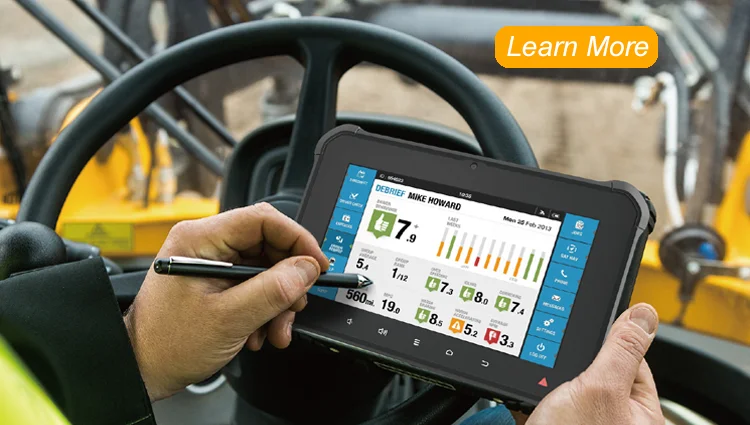In the realm of mobile computing, Linux tablets have garnered favor among professionals and general users for their open-source, flexible, and secure nature. With the continuous advancement of technology, more manufacturers are launching tablets equipped with Linux systems, providing users with a rich array of choices. This article will delve into the best Linux tablets on the market in 2024, offering professional reviews and data analysis to assist professionals and users in making informed decisions.
- The Advantages and Development Trends of Linux Tablets
- Review of the Top 5 Best Linux Tablets of 2024
- (1)Samsung Galaxy Tab S7 with Linux on DeX
- (2)Lenovo Chromebook Duet with Linux
- (3)PineTab with Linux
- (4)GPD MicroPC with Linux
- (5)Vankyo MatrixPad Z1 with Linux
- Future Prospects of Linux Tablets
- Conclusion
The Advantages and Development Trends of Linux Tablets
Linux tablets, as a type of mobile computing device, have established their place in the market with unique advantages. Firstly, the Linux system, being open-source software, offers high flexibility and customizability, allowing users to personalize their configurations based on their needs. Secondly, the Linux system is renowned for its security, effectively protecting users’ data. Additionally, Linux tablets typically have good hardware compatibility, supporting a variety of peripherals and applications.
With the rapid development of mobile internet, Linux tablets are also evolving and improving. On one hand, hardware performance enhancements enable Linux tablets to meet the demands of more complex applications; on the other hand, the improvement of the software ecosystem and user experience is gradually increasing the popularity of Linux tablets among general users.
Review of the Top 5 Best Linux Tablets of 2024
(1)Samsung Galaxy Tab S7 with Linux on DeX
The Samsung Galaxy Tab S7 is a powerful tablet that supports the Linux system through DeX mode. Equipped with the Snapdragon 865+ processor, it boasts 6GB of RAM and 128GB of storage, delivering robust performance. Its 10.4-inch AMOLED screen boasts a resolution of 2000×1200, offering excellent display quality. Moreover, it comes with an S Pen stylus, supports wireless charging, and has 5G network capabilities. In real-world use, the Samsung Galaxy Tab S7 runs the Linux system stably, satisfying daily office and entertainment needs.
(2)Lenovo Chromebook Duet with Linux
The Lenovo Chromebook Duet is a Chromebook that can be converted into a tablet, supporting the Linux system. It is powered by the MediaTek Helio P60T processor, with 4GB of RAM and 128GB of storage. Its 10.1-inch screen has a resolution of 1920×1200, providing clear display quality. Additionally, it comes with a magnetic keyboard and a stylus pen. In real-world use, the Lenovo Chromebook Duet runs the Linux system smoothly, suitable for light office work and daily entertainment.
(3)PineTab with Linux
The PineTab is an affordable Linux tablet offered by Pine64. It features the Allwinner A64 quad-core processor, with 2GB of RAM and 32GB of storage. Its 10-inch screen has a resolution of 1280×800, offering average display quality. Despite its modest hardware specifications, the PineTab runs the Linux system stably, suitable for basic office tasks and web browsing.
(4)GPD MicroPC with Linux
The GPD MicroPC is a compact Linux tablet designed for engineers and developers. It is powered by the Intel Celeron N4100 processor, with 8GB of RAM and 128GB of storage. Its 6-inch screen has a resolution of 1280×720, providing decent display quality. The GPD MicroPC is also equipped with multiple USB ports and an HDMI interface, facilitating the connection of peripherals. In real-world use, the GPD MicroPC runs the Linux system stably, making it suitable for programming and embedded development.
(5)Vankyo MatrixPad Z1 with Linux
The Vankyo MatrixPad Z1 is a cost-effective Linux tablet suitable for general users and students. It features the Unisoc SC9863A octa-core processor, with 4GB of RAM and 64GB of storage. Its 10.1-inch screen has a resolution of 1280×800, offering average display quality. The Vankyo MatrixPad Z1 runs the Linux system stably, making it suitable for daily entertainment and educational use.
Future Prospects of Linux Tablets
With the continuous optimization of the Linux system and the enhancement of hardware performance, the future market prospects for Linux tablets are promising. On one hand, Linux tablets will continue to hold a significant position among professionals and developers, providing powerful support for their work and studies; on the other hand, as general users become more aware of the Linux system, the market share of Linux tablets among them is expected to gradually expand.
Furthermore, with the development of the Internet of Things and smart homes, Linux tablets are expected to play a significant role in smart home control and IoT device management. In the future, we can look forward to Linux tablets demonstrating their unique charm in more fields.
Conclusion
Linux tablets have carved out a niche in the mobile computing sector with their open-source, flexible, and secure characteristics. Through the reviews and data analysis presented in this article, we can see that there are several outstanding Linux tablets on the market in 2023, which offer good performance, display quality, and user experience. As technology continues to advance, the future market prospects for Linux tablets are bright, and they are set to provide professionals and general users with more high-quality choices.

